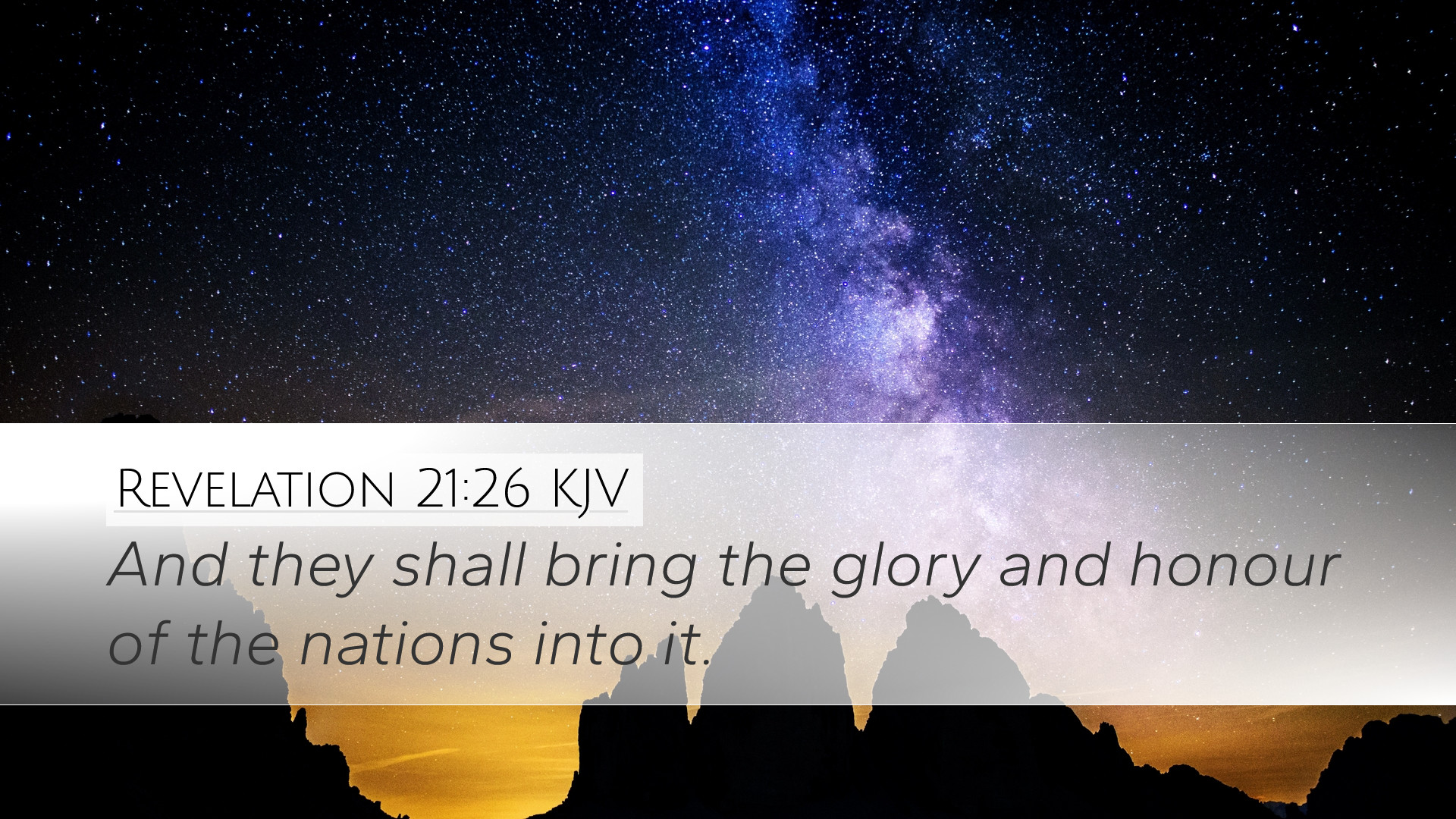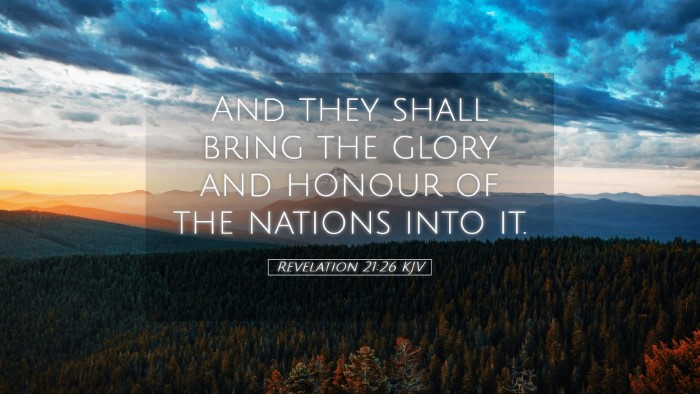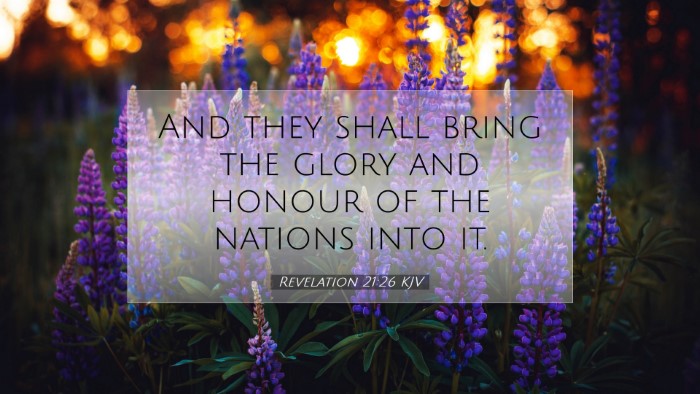Bible Commentary on Revelation 21:26
Revelation 21:26 states: "And they shall bring the glory and honour of the nations into it." This verse, situated within the context of the new heaven and new earth introduced in Revelation 21, provides profound insights into the ultimate purpose of God's redemption and the culmination of human history.
To understand the significance of this verse, we must consider several perspectives grounded in the insights of esteemed public domain commentators like Matthew Henry, Albert Barnes, and Adam Clarke.
Contextual Analysis
This verse concludes the description of the New Jerusalem, a city brilliantly illuminated by the glory of God. The broader context of Revelation 21 depicts a transformed creation, contrasting sharply with the destruction of the old order in Revelation 20. Here, the emphasis is placed on the redemptive plan of God and the reconstitution of a relationship between humanity and divine glory.
Matthew Henry's Insights
Matthew Henry highlights the notion that the inclusion of the nations’ glory and honor indicates the fulfillment of God's covenant with humanity. He points out that the “glory” refers to the radiant excellence of nations and peoples, which they bring forth as an acknowledgment of God’s greatness. Such a contribution reflects a magnification of divine honor as humanity embraces its role in the heavenly order.
Furthermore, Henry notes that this act symbolizes the ultimate reconciliation of all human endeavors and achievements to God's glory. The varied contributions from the nations illustrate a celebration of diversity in unity, where every tongue and tribe offers up their inherent gifts in worship to God.
Albert Barnes' Reflections
Barnes expands on the idea of nations participating in the glory of the New Jerusalem. He underscores that the phrase “bring the glory and honour” signifies a recognition of divine sovereignty among the nations. This suggests a reversal of the chaotic and fallen state of humanity, where idolatry and division previously reigned.
In his commentary, Barnes elucidates that God's plan involves a restoration where nations come together in unity—not for selfish ambition but to glorify the Creator. The treasures being brought into the New Jerusalem are not earthly riches but spiritual offerings suggesting that the entirety of human experience culminates in the worship of God.
Adam Clarke's Thoughts
Adam Clarke emphasizes the prophetic nature of this verse. He argues that it embodies the vision of a future where the barriers that once divided nations vanish in God’s eternal kingdom. Clarke sees this as an ultimate realization of promises made throughout Scripture, where the nations will finally recognize the supremacy of God.
Clarke also draws attention to the importance of “glory and honour” in a spiritual sense. He interprets this not just as physical treasures but as the acknowledgment of God’s attributes by the redeemed. The homage paid by the nations serves as a testament to the transformative power of Christ’s redemption, which glorifies God in the highest.
Theological Implications
-
Redemption and Restoration: The verse signifies the culmination of God’s redemptive work. Every act of worship and honor that nations bring reflects the restoration of right relationship between God and humanity.
-
Unity in Diversity: The gathering of the nations represents the beautiful tapestry of God’s creation. Each nation's honor contributes to a collective glory that points back to God’s infinite worth.
-
The Kingdom of God: This verse encapsulates a significant aspect of eschatological hope. It portrays a future reality where all creation acknowledges God’s rule, lacking division and strife.
Practical Applications
For pastors, students, and theologians, Revelation 21:26 provides a rich landscape for practical application in ministry and theological reflection. Here are a few insights for consideration:
-
Missional Imperative: Understanding that all nations will participate in God's glory ought to fuel the church’s missional activities. As believers, the goal is to engage with diverse cultures and communities in ways that reflect the love and grace of God.
-
Celebration of Diversity: Churches should seek to embrace and celebrate diversity within their congregations as a foretaste of the heavenly kingdom where all nations gather to honor God.
-
Worship and Honor: This verse invites us to reflect on our acts of worship. Are our lives and church practices reflecting honor and glory to God? It calls for a lifestyle that continuously acknowledges God's supremacy and magnificence.
Conclusion
Revelation 21:26 serves not only as a point of theological reflection but also as a vision of hope and unity for the church. As we anticipate the coming of the New Jerusalem, may we commit to living in ways that reflect God’s glory and honor, actively participating in the ongoing narrative of redemption that brings diverse nations together in worship.


